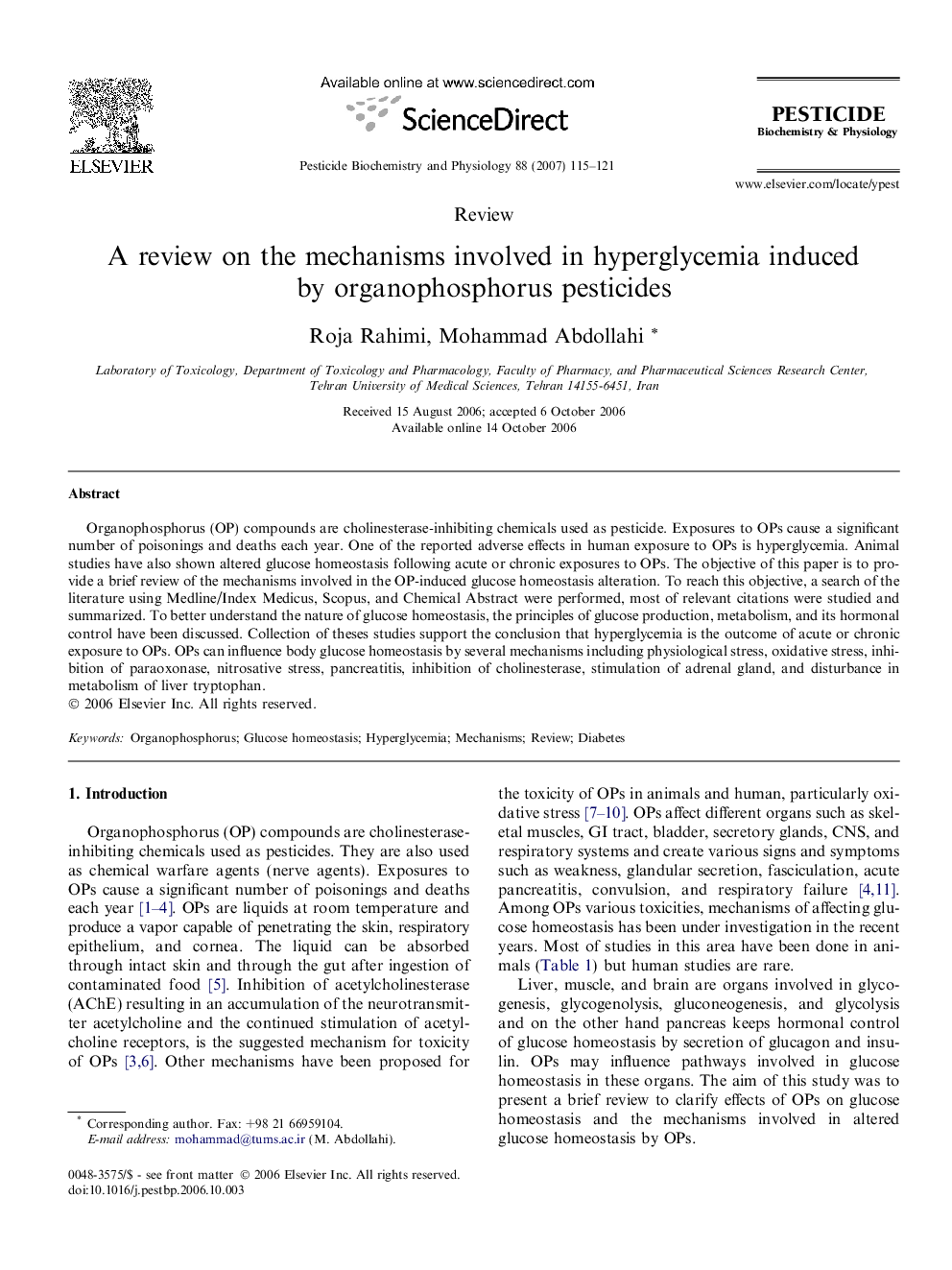| Article ID | Journal | Published Year | Pages | File Type |
|---|---|---|---|---|
| 2010188 | Pesticide Biochemistry and Physiology | 2007 | 7 Pages |
Organophosphorus (OP) compounds are cholinesterase-inhibiting chemicals used as pesticide. Exposures to OPs cause a significant number of poisonings and deaths each year. One of the reported adverse effects in human exposure to OPs is hyperglycemia. Animal studies have also shown altered glucose homeostasis following acute or chronic exposures to OPs. The objective of this paper is to provide a brief review of the mechanisms involved in the OP-induced glucose homeostasis alteration. To reach this objective, a search of the literature using Medline/Index Medicus, Scopus, and Chemical Abstract were performed, most of relevant citations were studied and summarized. To better understand the nature of glucose homeostasis, the principles of glucose production, metabolism, and its hormonal control have been discussed. Collection of theses studies support the conclusion that hyperglycemia is the outcome of acute or chronic exposure to OPs. OPs can influence body glucose homeostasis by several mechanisms including physiological stress, oxidative stress, inhibition of paraoxonase, nitrosative stress, pancreatitis, inhibition of cholinesterase, stimulation of adrenal gland, and disturbance in metabolism of liver tryptophan.
